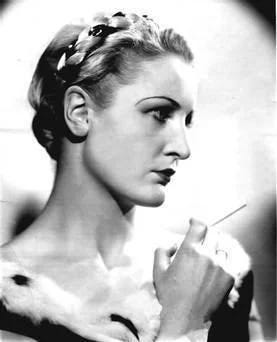Ómós Digest #185: The Original Tastemaker
Food, Feminism & Theodora FitzGibbon. Written by Eoghan Conway.

Theodora FitzGibbon
The nuclear family and its rigid roles saw women largely dominate domestic life in 20th-century Ireland. Women were cast as guardians of the home, and their identities confined to domestic duties. Careers were cut short due to marriage bans, as women were oftentimes slaves to a Stanley. Cooking was not just a daily chore but a cultural expectation. Piety mixed with pepper and servitude with salt. The kitchen was considered the woman's domain, one which constrained and oppressed. The Constitution of 1937 acknowledged the role of women in the home and ensured that mothers “shall not be obliged by economic necessity to engage in labour to the neglect of their duties in the home”. Given that these articles are still standing, the role of women in the history of Irish food has largely been one of subjection to the stove.
In this context, the term domestic goddess was one used to describe the 20th-century ideal of the perfect housewife. A figure with the beauty, charm and charisma of Marilyn Monroe and the culinary prowess of Julia Child. Yet the term seemed to be one used by Mad Man-esque executives with now outdated views and beliefs, or to be unfortunately brandished about by your uncle in jest at a barbecue. The term domestic goddess was laden with burdensome and largely unattainable expectations for women.

Nowadays, there exists a certain feminist irony in the term and its 21st-century usage. A reappropriation of it in a show of admiration for culinary capabilities, be it in a reclaimed manner. A Nigella Lawson laden compliment, contrasting beauty and blue cheese, glamour with goulash. One that truly celebrates and heralds the culinary achievement away from the shackles of historically mandated attributes. If anyone encompasses this 21st-century synchronic meaning of a domestic goddess, it's Theodora FitzGibbon. She was the epitome of homespun meets heroine. Over her 72-year life, she treaded the fields of muse, writer, model, socialite, ethnographer and folklorist. Her life reads like a John Le Carré novel intertwined with a gastronomical pretence.
Theodora was born Joan Eileen Rosling in 1916 in London. She was schooled in a mixture of convents from Belgium to England. FitzGibbon spent her summers of youth with her father's relatives in Ballymackay, Co. Tipperary. It's here where her Irish roots were nurtured and her love for food flourished. Her gourmand gaze was born in her early life as she travelled widely around India, Europe and the Middle East with her father. The line between fact and fiction of this life is oftentimes indistinguishable, and her persona is a highly cultivated one. An instance of this is how she claimed to have received cooking lessons from Queen Natalie of Serbia at a finishing school in Paris.
Finding herself at the same crossroads most late young adults do, she answered the call of a bohemian life. Her early twenties saw her pursue a career in acting, joining a touring group in France as well as taking the pseudonym Karen Peterson. FitzGibbon proceeded to spend the next fifteen or so years living between Paris, London, Bermuda and Capri. Her bills paid by modelling for couturiers, odd acting jobs, as well as serving as a muse to the artist Peter Rose Pulham. During the war, she even worked in the propaganda section of the Free French Army, where she met her first husband, Constantine FitzGibbon, and took on the name Theodora.
These bohemian ramblings led her to mix with figures like Donald MacLean, a British diplomat and Soviet spy, Francis Bacon, Lucian Freud, as well as Picasso and Dali. Not bad for a woman with Ballymackay blood. She once remarked about her early adulthood, “I have starved in some of the most beautiful places in the world”. An ironic yet aptly eloquent observation from one of Ireland's foremost food writers.
Her entrance into the world of food writing came at the behest of the publisher Derek Verschoyle. He admired her cooking and, as a result, invited her to write her first book. Cosmopolitan Cookery in an English Kitchen was published in 1952. From that point on, she frequently contributed articles and recipes to both the Daily Telegraph and Harper's Bazaar.
In 1959, upon moving to Dalkey, she proceeded to grow her career as a food and drink writer.

FitzGibbon is most well-known for her book A Taste of Ireland, a beautiful compendium of anecdotes, recipes, folk tales and historical tidbits. Photos of a bygone era are matched with a recipe, presenting a collection that is a cross between a Bord Fáilte booklet and an artistic portfolio. Recipes are as wide and varied as colcannon, cruibíns and champ. A hint to the aptly named Dublin Lawyer dish can also be found, named as such due to it being rich, thick and full of whiskey. The book would go on to have two print runs and sell well over 200,000 copies. I’d highly recommend anyone who comes across a second-hand edition to pick it up. Its pages present a glimpse into a tradition of Irish food that has been smeared by Paddywackery and Temple Bar tourist menus.



